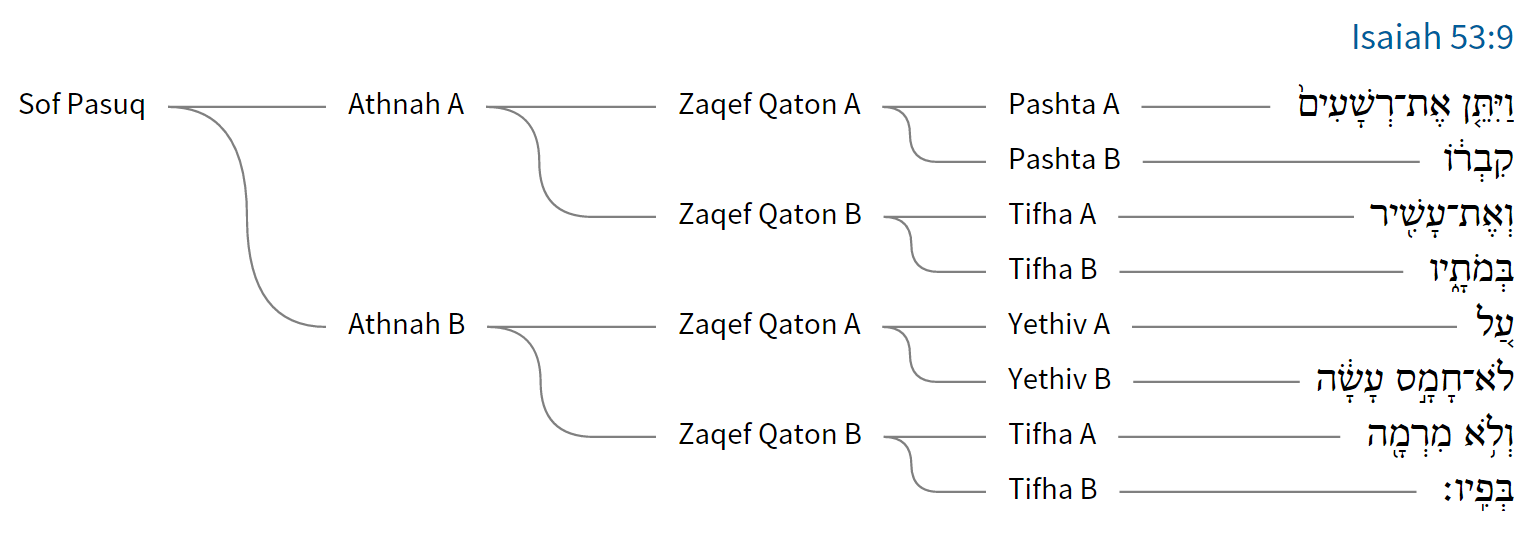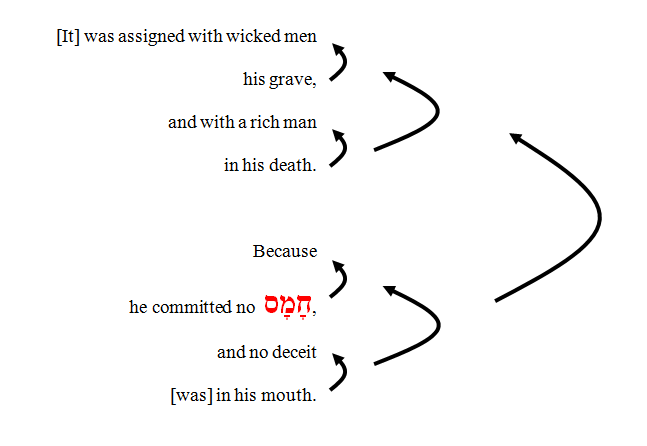The phrase “because no” (על לא) does not appear to have any particular vowel pointing nuance or exceptions of spelling in Hebrew Scripture, however the Masoretic scholars noted that the phrase “because no” occurs three times in the Masoretic Text. (Please see the middle column on Masoretic note on Page 486 of the Codex Leningradis online.) Notwithstanding that there is no footnote or endnote to advise the reader where these other verses occur, modern Bible software indicates that the other two locations where this phrase appears are in Psalm 119:136 and Job 16:17.
For example, the Book of Job contains the exact same phrase “because no violence” (על לא-חמס) as the Book of Isaiah. And the Masoretic scholars could have said “two instances of this phrase in the Masoretic Text,” but they did not. They cut the phrase short to “because no,” and only noted that there were three appearances of the phrase “because no” (על לא) in the Masoretic Text.
Within the Masoretic Text the word for violence, chāmās (חמס), occurs sixty times, and the meanings vary between violence, wrong, cruelty, and injustice among others. In the Book of Job (as noted in the previous paragraph) the meaning appears to be explicit physical violence. However, the third verse noted by the Masoretic scholars was Psalm 119:136, which speaks to non-observance of the Law of Moses. In other words, the meaning of chāmās (חמס), in Isaiah 53:9 appears to have more to do with injustice than with violence, as the following paragraphs will make clear.
The Masoretic scholars used a system of cantillation not only for the pleasure of associating musical notation to Scripture, but also for the purpose of creating dichotomies of logic in the Scripture, which facilitated the memorization of the Scripture (through the accompaniment of cantillation). The following diagram is the logical division of the verse in this regard with cantillation notations.

Each segment is modified by the following segment. Each segment is further divided. Again, each segment is modified by the following segment. The major divisions, in turn, modify the previous major segments. In this regard, 99% of all verses in the Hebrew Scriptures possess these divisions, where segments and sub-segments modify the previous segments. In English, the segmentation of Isaiah 53:9 would appear as follows.

When we address the logical segment division of this verse, and we consider how the same Masoretic scholars associated the words with Psalm 119:136, the apparent and obvious meaning of chāmās (חמס) in this particular context is injustice. In other words, there was no deceit in his mouth, which is non violent, since words are only sound waves uttered through the vocal chords. This part of the verse modifies chāmās (חמס), which must mean injustice. That is, he committed no injustice through any utterances ever made by his mouth.
However, the nuance of Job 16:17 comes to mind, which is the third verse noted by the Masoretic scholars, since the effects of words sometimes can and do have the same effect as actual physical violence.

